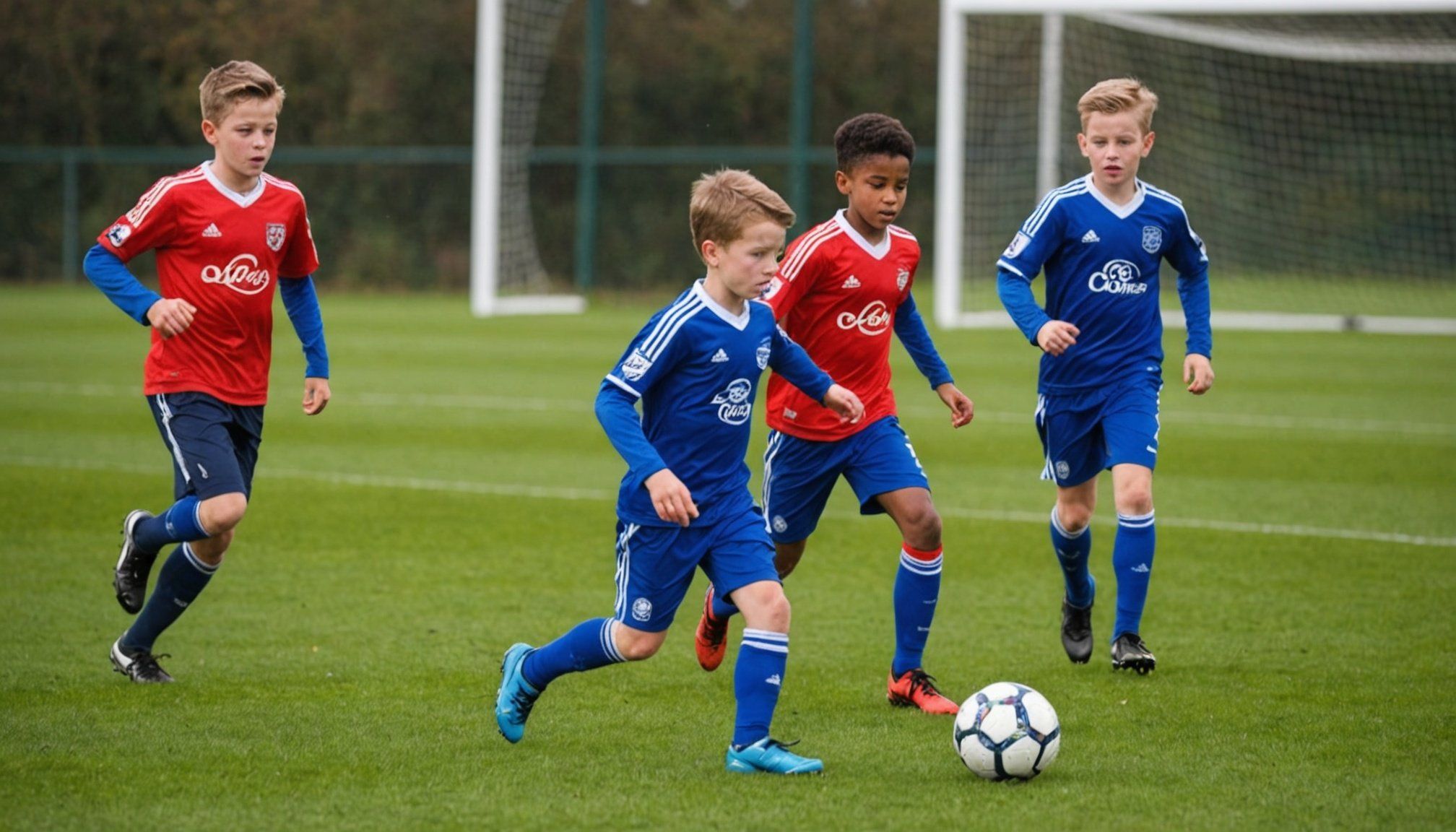Football in the UK is more than just a sport; it’s a cultural cornerstone, a community unifier, and a dream for many young athletes. To realize these dreams, football academies play a pivotal role in nurturing budding talent. However, with changing dynamics in sports training, socio-economic challenges, and ever-evolving expectations from clubs and fans, academies face an uphill task. How can they ensure they are nurturing talent effectively to meet the demands of the modern game? This article delves into strategies that could enhance talent development in the context of UK football academies.
Emphasizing Holistic Player Development
Football academies must adopt a holistic approach to player development, balancing technical skills with mental and emotional growth. The modern game demands athletes who are not only skilled on the ball but are also mentally resilient and emotionally intelligent.
Also to read : What are the most common injuries in UK football, and how can players prevent them?
Technical Proficiency
One cannot overlook the importance of foundational skills. Coaches should focus on developing dribbling, passing, shooting, and tackling from an early age. Regular, structured training sessions that simulate real-game scenarios can hone these abilities.
Mental Resilience
Football academies should integrate sports psychology into their programs. Players should be educated on the importance of mental toughness, concentration, and stress management. Techniques such as visualization, positive self-talk, and mindfulness can assist in building a strong mental framework.
In parallel : What technological innovations are shaping the future of coaching in UK football?
Emotional Intelligence
Understanding team dynamics and nurturing interpersonal skills can lead to more cohesive teams. Workshops on communication, leadership, and empathy can equip young players to handle both on and off-field challenges.
Holistic development is not just an ideal but a necessity for grooming well-rounded athletes who can thrive under pressure.
Investing in Quality Coaching and Infrastructure
The foundation of any successful academy is its coaching staff and infrastructure. To nurture talent effectively, academies must prioritize hiring qualified coaches and ensuring their facilities are top-notch.
Recruiting Top Coaches
Quality coaching is indispensable in the development process. Academies should focus on recruiting coaches with robust experience and up-to-date knowledge of the game. Continuous professional development should be encouraged, allowing coaches to stay ahead of tactical and technical innovations.
Modern Facilities
State-of-the-art facilities can make a significant difference in player development. Playing surfaces, gymnasiums, and training equipment should replicate high-level standards. Moreover, technology, such as performance analysis tools and fitness monitors, can provide invaluable insights into players’ progress and areas for improvement.
Health and Nutrition
An often-overlooked aspect is the role of nutrition and healthcare in talent development. Establishing partnerships with nutritionists and sports physicians can ensure young athletes receive comprehensive care, aiding in their physical development and injury prevention.
Creating a Pathway for Career Progression
For many young players, football is not just a passion but a potential career. Academies should create clear pathways for players’ progression, ensuring they have the best chances of making it professionally.
Structured Progression Plans
Each player’s journey is unique. Tailored progression plans should be crafted, taking into account their current abilities, potential, and aspirations. Regular assessments and feedback can guide adjustments to these plans.
Competitive Opportunities
Exposure to competitive matches is crucial for development. Academies should facilitate participation in local, national, and international tournaments. This not only provides experience but helps gauge players against different calibers.
Education and Life Skills
Recognizing that not all players will become professional athletes, academies should emphasize education and life skills. Providing access to academic support and career counseling can prepare players for life beyond football, ensuring they have diverse opportunities.
Engaging the Community and Stakeholders
Football academies do not operate in isolation. Engaging with the broader community and stakeholders can provide the support and resources needed for effective talent nurturing.
Building Community Ties
Strong community ties can enhance an academy’s reputation and attract more young talent. By hosting community events, outreach programs, and open days, academies can foster goodwill and inclusivity.
Collaborating with Clubs and Sponsors
Partnerships with professional clubs and sponsors can offer financial, infrastructural, and educational support. Such collaborations can also open up opportunities for young players to be scouted and trained at higher levels.
Parental Involvement
Parents play a crucial role in a young player’s development. Academies should maintain transparent communication with parents, keeping them informed and involved in their child’s progress. Workshops and seminars can further educate parents on supporting their children’s aspirations.
The journey of nurturing talent in football academies is multifaceted, requiring dedication and strategic action. By focusing on holistic player development, enhancing coaching and facilities, structuring career pathways, and fostering community engagement, UK football academies can ensure they are effectively nurturing their young talents. This approach not only promises success on the field but also cultivates individuals prepared for the challenges of modern football and life beyond it. By embracing these strategies, academies can continue to be the bedrock of footballing excellence in the UK.











